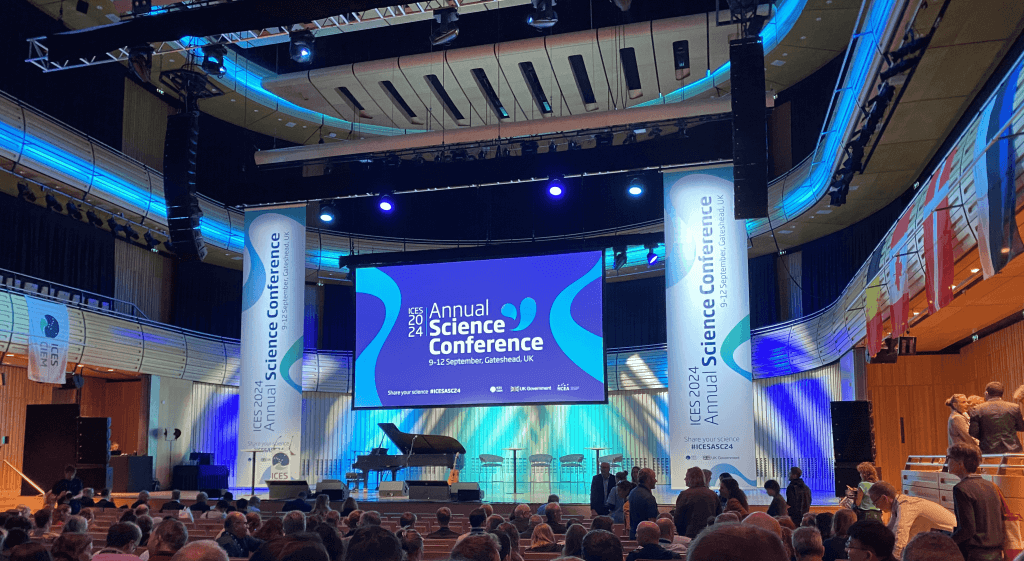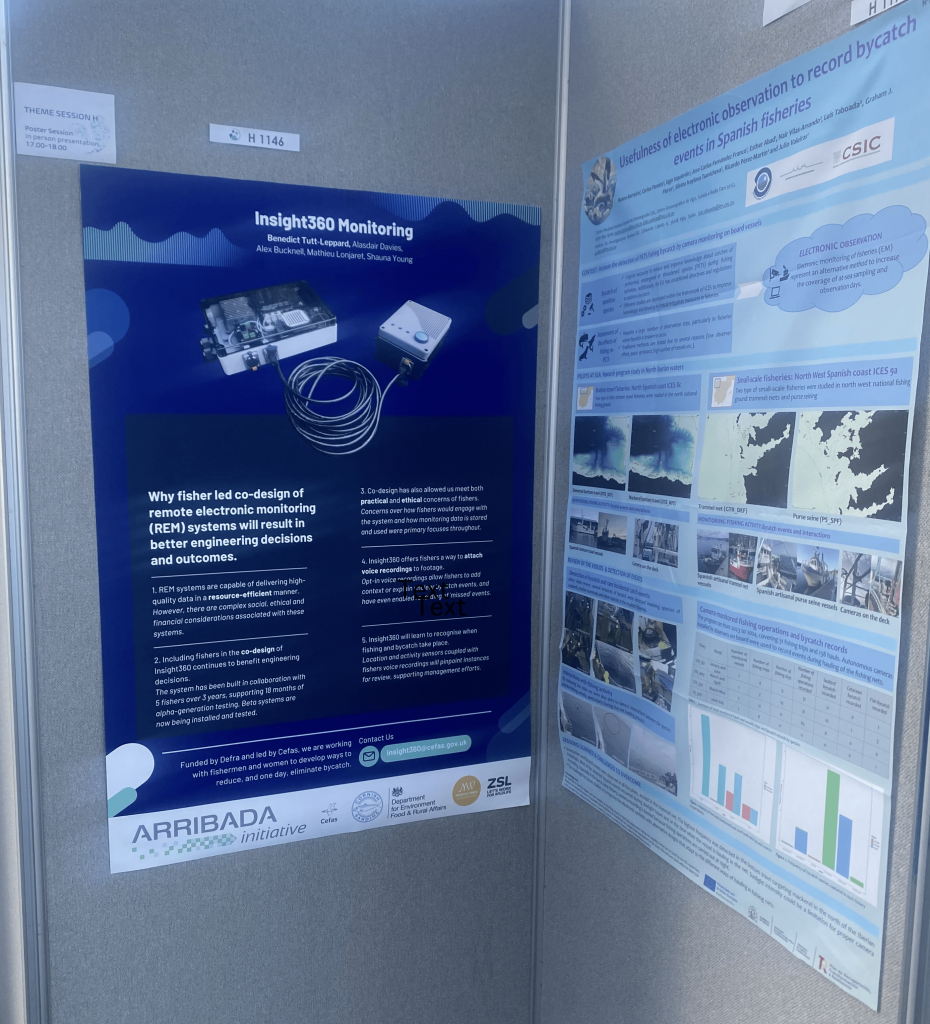On 10 September 2024, Ben Tutt-Leppard from Arribada presented a poster on the Insight360 project at the ICES (International Council for the Exploration of the Sea) Annual Science Conference in Gateshead, UK.
Taking place over four days in total, the ICES annual science conference is the flagship event of the ICES calendar, showcasing leading science and research and addressing critical fisheries advisory challenges in the UK and beyond. The Insight360 poster was presented at Theme Session H: How can camera-based electronic monitoring improve bycatch management?

Discussing advances and challenges in REM
The session provided a valuable opportunity to engage with other aspects of complementary REM (Remote Electronic Monitoring) programmes. Whilst Insight360 focuses on bycatch, the application of REM systems to shed light on other fisheries management challenges – such as discard and quota monitoring – is something that teams at Defra (the UK Government’s Department for Environment Food and Rural Affairs) are working on in parallel.
The conference brought together numerous international REM projects, and it was valuable to hear from representatives such as NOAA and industry providers of REM systems about the challenges of implementing electronic monitoring within a range of fisheries worldwide. There was consensus that while collecting data is relatively easy, the analysis of vast amounts of footage is less so. There have been advances in programming AI/machine learning models for this, but as recordings of actual bycatch events can be scarce, not every organisation or country has the data needed to train these systems. In general, developers and managers still rely on human checking of recordings, which in some cases consumes up to 40% of project budgets.
A global solution?
There was a feeling that the wider science community envisions an ideal scenario where a globally accessible database would collate data and be used to train systems worldwide. However, significant barriers to this exist around data ownership and privacy laws. To overcome these and to be effective, a database of this nature and scale would need to be owned and protected by a large-enough body, with ICES itself being suggested as a potential candidate. The discussion exemplified the continued need for innovation and collaboration within the REM community.
As Insight360 continues to evolve, participating in these events is invaluable for gauging the wider REM community’s feelings – and for strategising on how to address the biggest challenges to fully realising the potential of REM for sustainable fisheries management.

The Insight360 poster, presented at the ICES Annual Science Conference 2024